Professional electromyography testing that pinpoints exactly what’s causing your symptoms, so you can move forward with the right treatment.
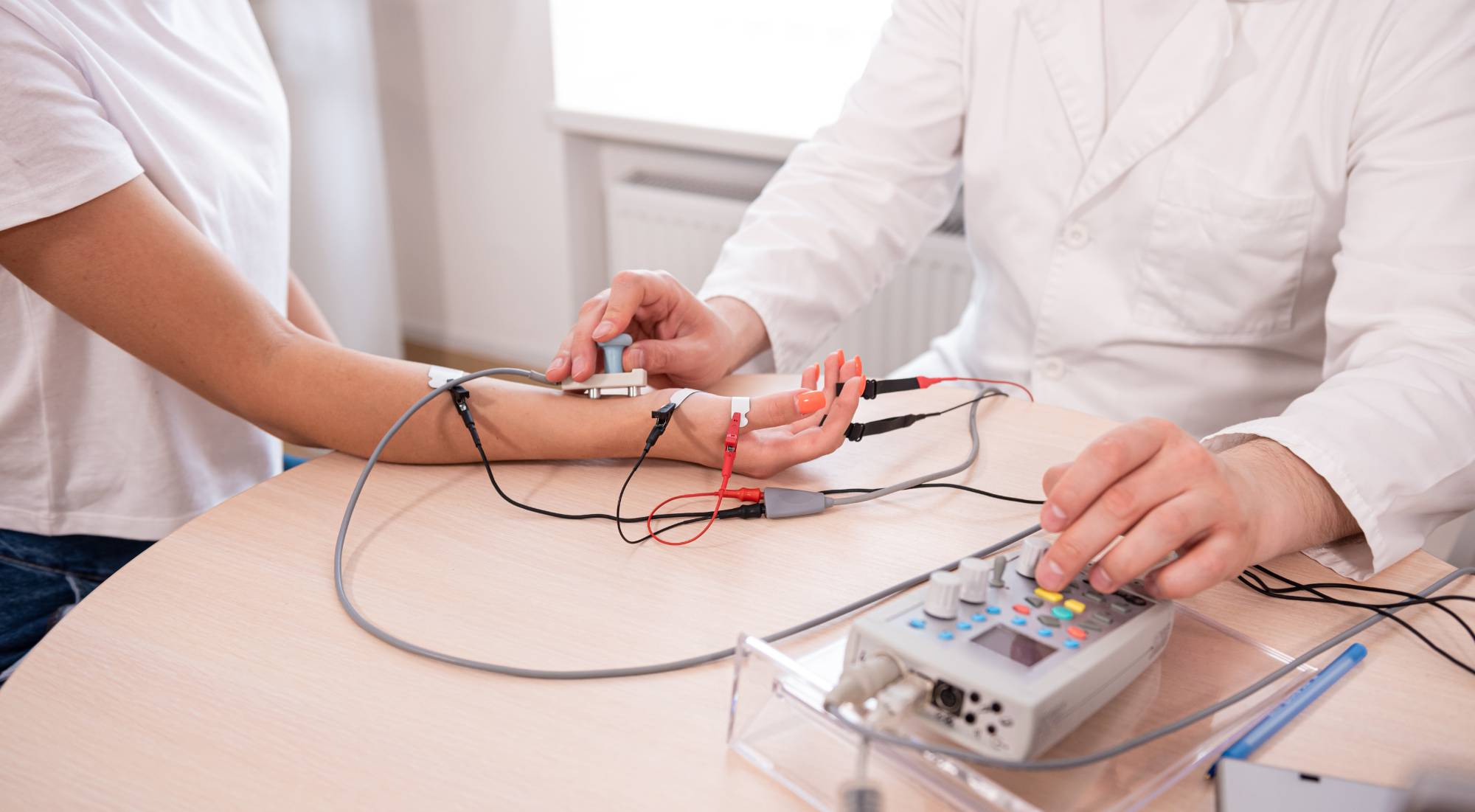
Reviews
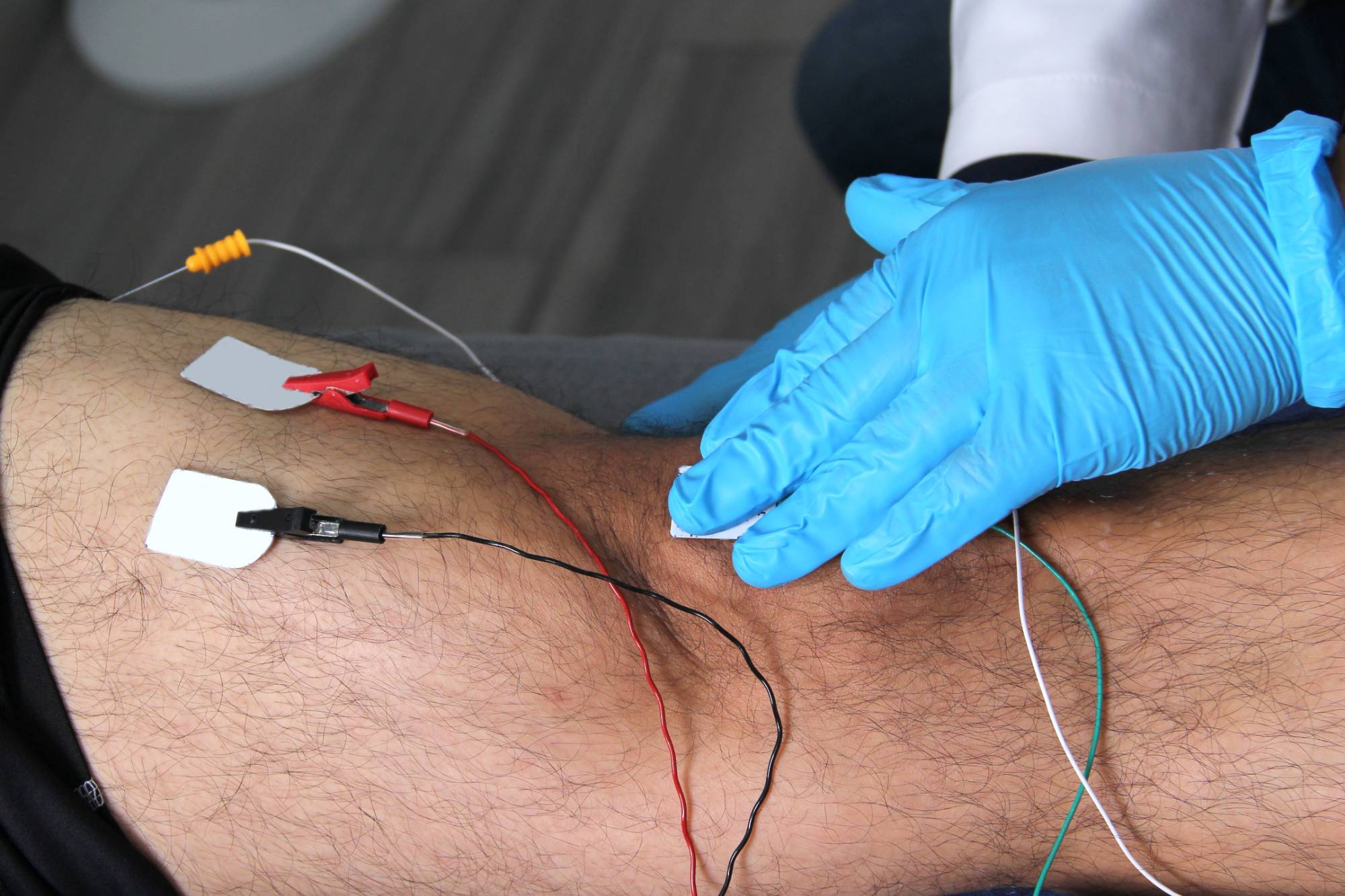
You’ve been dealing with numbness, tingling, or muscle weakness long enough. EMG testing gives you the diagnostic clarity you need to stop guessing and start treating the real problem.
This comprehensive nerve and muscle testing identifies conditions like carpal tunnel syndrome, sciatica, diabetic neuropathy, and other neuromuscular disorders that standard imaging often misses. You’ll walk away with specific answers about nerve function, muscle response, and the exact location of any damage or compression.
No more wondering if your symptoms are “all in your head.” You get measurable results that validate what you’re experiencing and guide your treatment plan moving forward.
NY Spine Medicine has been providing accurate EMG and nerve conduction studies to Flagami residents for years. Our team consists of board-certified physicians who specialize in diagnosing complex nerve and muscle conditions.
We understand that you’ve probably been through multiple appointments, tests, and treatments without getting clear answers. That’s exactly why we focus on thorough diagnostic testing that gets to the root of your symptoms.
We use hospital-grade equipment and take the time to explain your results in plain language, so you understand exactly what’s happening and what your options are.
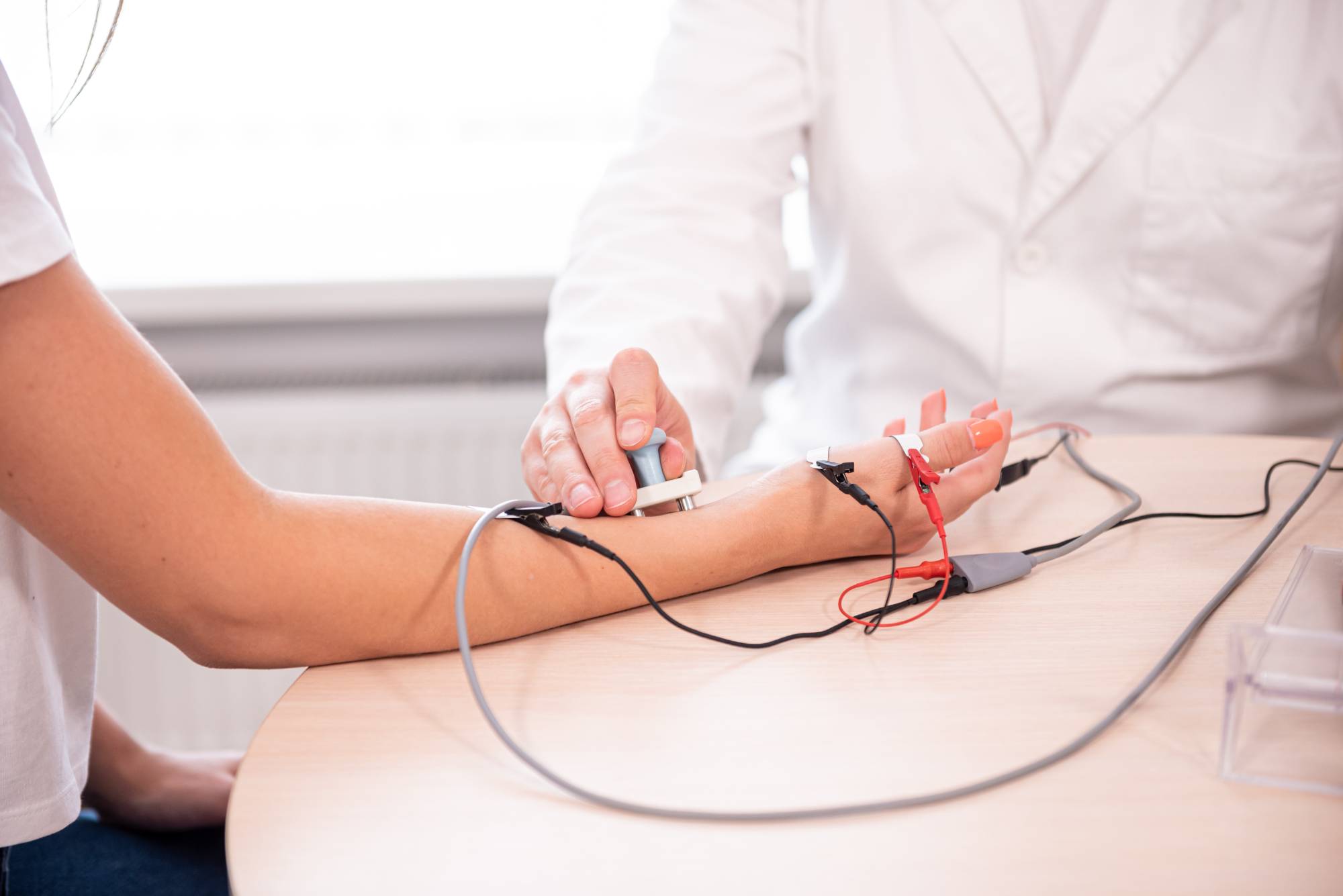
The EMG test involves two parts that work together to give a complete picture of your nerve and muscle function. First, the nerve conduction study measures how well electrical signals travel through your nerves using small electrodes placed on your skin.
Next, the electromyography portion uses a thin needle electrode to measure electrical activity in your muscles. This shows whether muscle weakness comes from nerve damage, muscle disease, or problems with nerve-muscle communication.
The entire process typically takes 30-60 minutes depending on which nerves and muscles need testing. You’ll receive your results immediately, along with a clear explanation of what the findings mean for your specific situation and treatment options.
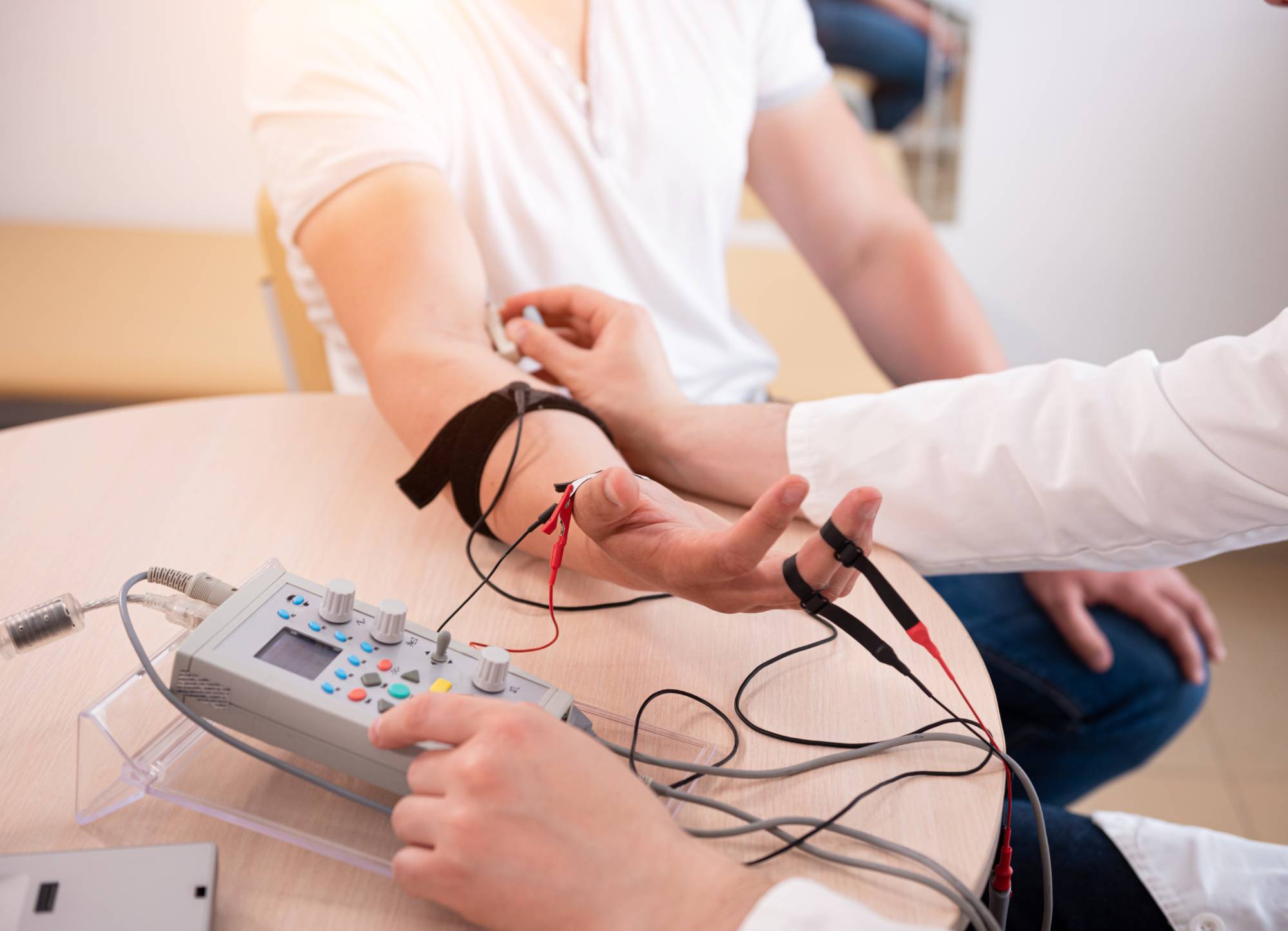
Ready to get started?
Your EMG testing appointment includes both nerve conduction studies and electromyography testing performed by our experienced specialists. You’ll receive a detailed evaluation of nerve transmission speeds, muscle electrical activity, and any signs of nerve damage or compression.
The testing can diagnose conditions affecting arms, legs, neck, and back including carpal tunnel syndrome, ulnar neuropathy, radiculopathy, peripheral neuropathy, and muscle disorders. Each test is customized based on your specific symptoms and the areas of concern.
You’ll leave with a comprehensive report explaining your results, copies for your referring physician, and clear recommendations for next steps. Most insurance plans cover EMG testing when medically necessary, and our office handles authorization and billing directly.
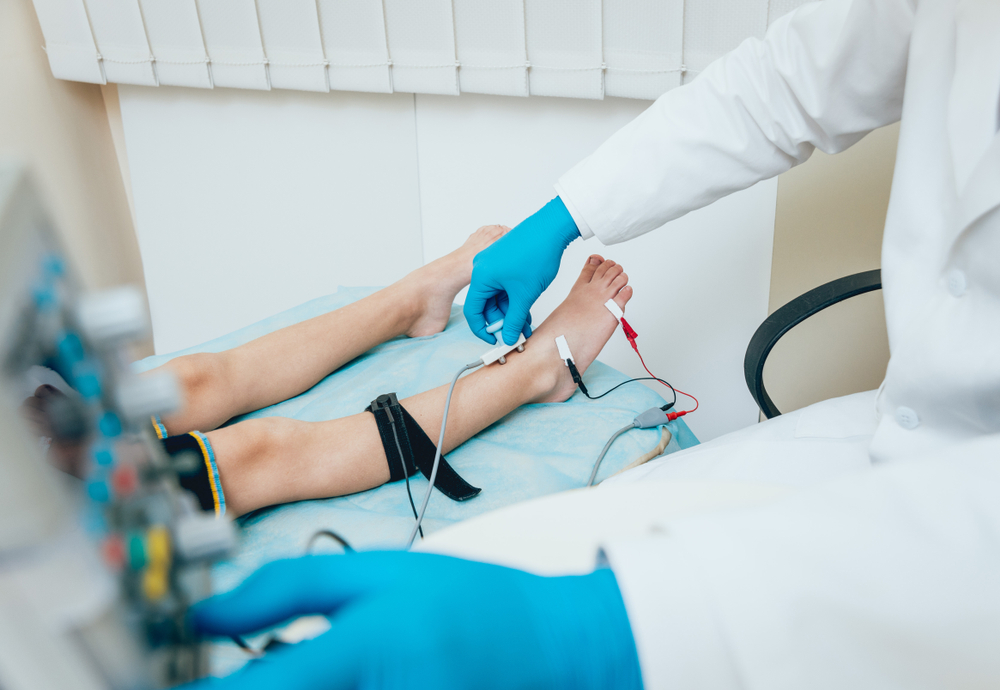
New York:
Florida:
Support